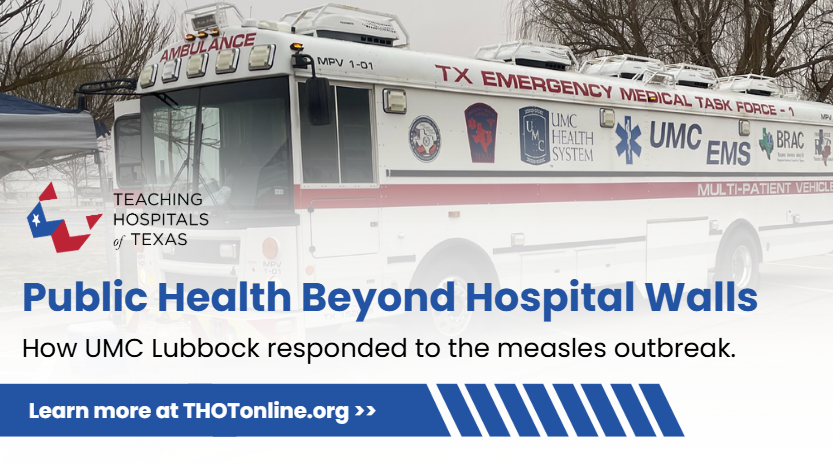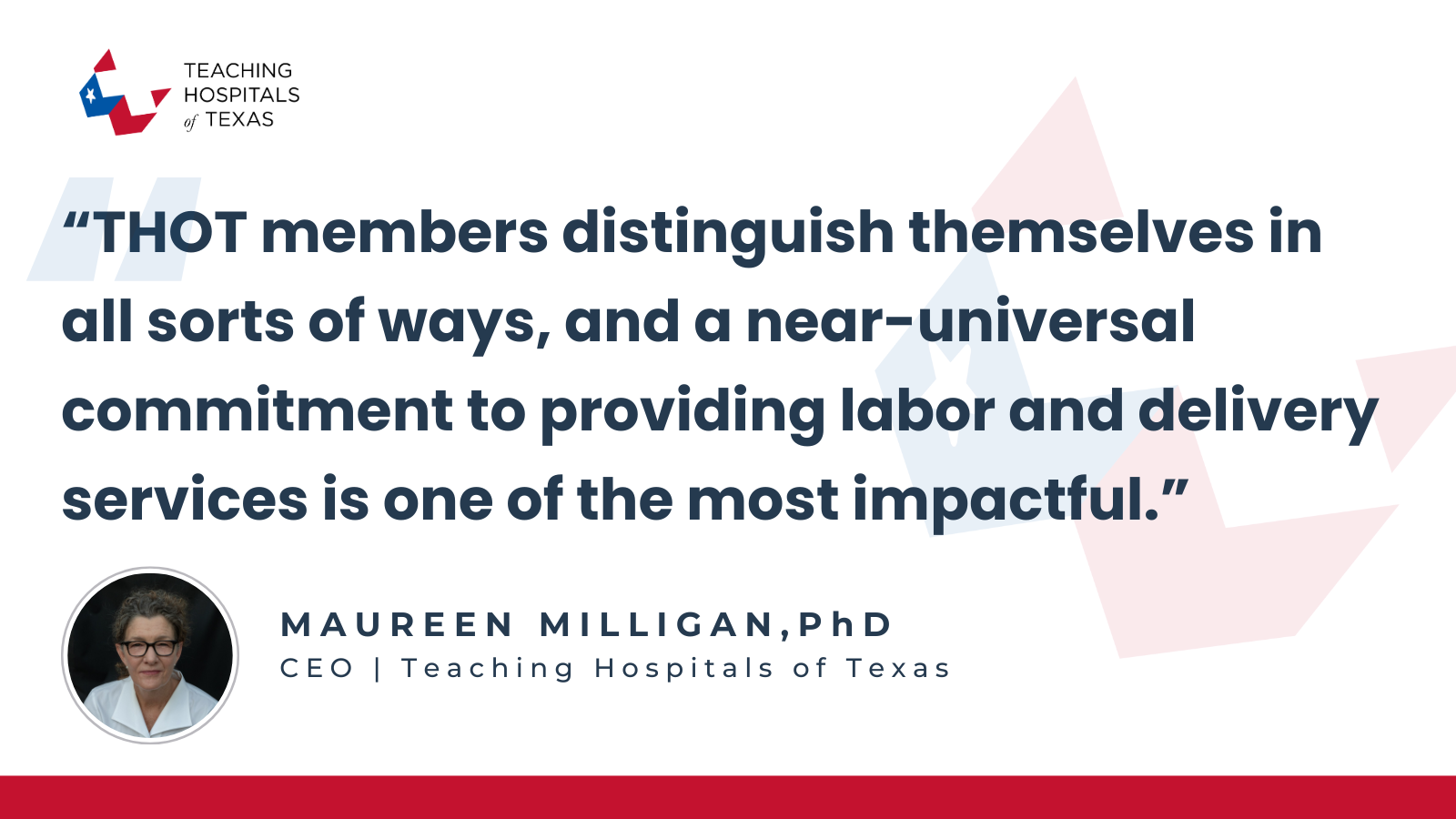November 18, 2024 (AUSTIN, Texas) –– A new series from the Teaching Hospitals of Texas profiles some of the behavioral health care investments and innovations public and teaching hospitals are leading to respond to their communities’ increasing need for behavioral health care.
“These investments and innovations demonstrate teaching and public hospitals’ commitment to meeting known community needs, partnering with other local organizations, and prudently investing public resources to address one of our state’s most significant challenges – timely, accessible behavioral health care,” said Maureen Milligan, Ph.D., CEO, Teaching Hospitals of Texas. “For several sessions, the Texas Legislature has appropriated significant funds for behavioral health care improvement, and our teaching and public hospitals, often in partnership with the state, make proactive investments to improve behavioral health care access and outcomes.”
The series profiles five of the innovative programs and services that Texas’ teaching and public hospitals are deploying to grow the behavioral health care workforce and make behavioral health care timelier and more accessible for Texans of all ages and from all walks of life — children, adolescents, adults, seniors, veterans, those with serious and persistent mental illness, the unhoused, and those involved in the criminal justice system. Most of these programs and services are in partnership with local community-based organizations, and all reflect their community’s priorities and needs. Many also have vital financial support from the Texas Legislature.
The behavioral health investments profiled include:
- The RIGHT Care Program: Collaboration of Parkland Health, Dallas Fire-Rescue, and Dallas Police Department to respond to mental health crisis calls together and reduce ED use and jail placement.
- Permian Basin Behavioral Health Center: Partnership of Midland Health and Medical Center Health System (Odessa) to build and co-manage the region’s only behavioral health facility.
- Community-based training for psychiatry residents and child and adolescent psychiatry fellows in community-based mental health models and practices: Partnership of UT Tyler and Andrews Behavioral Health to increase care capacity in the community and address the shortage of behavioral health professionals.
- The Texas Behavioral Health Center at UT Southwestern (TBHC-UTSW): Collaboration of the Texas Health and Human Services Commission, Children’s Health, and UT Southwestern Medical Center to fund and operate a state psychiatric hospital.
- Expansion of the JPS Psychiatric Emergency Center and Depression Response Program: JPS Health Network takes a comprehensive approach to meeting the increasing behavioral health care needs of Tarrant County’s growing population.
“The downstream effects of timelier, more accessible behavioral health care are felt in our justice, education, acute medical, and social services systems,” added Milligan. “Texas’ teaching and public hospitals are entrusted with leadership, and their work to improve behavioral health care in the state serves as a national model.”
Complete profiles of the behavioral health investments and projects are available here.
–30–




